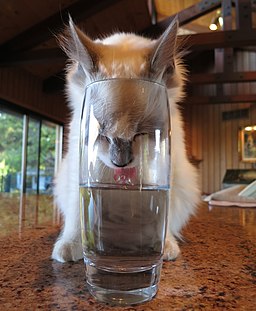 I was born on the crest of a tsunami of late-century self-help that's had a geological effect on our ability to think clearly.
I was born on the crest of a tsunami of late-century self-help that's had a geological effect on our ability to think clearly.The good news is that the worst is past. That was the period from the 70s to the Millennium, when such messianic gimmicks as Positive Mental Attitude (authentic 70s tip: the capital letters signal dippy fad ahead) laid waste to Western civilisation. But thirty years stoned on trademarked morality have taken their toll, and we're still dealing with the fallout from our protracted no-substance abuse.
I'm often given to reflect on this in Zen company. Western Zen draws heavily on what the 80s called "bobos" (bourgeois bohemians), a fetish of whom is rejection of consumerism, jingoism, xenophobia, homogeneity, and other questionable Western values.
All of which is fine by me. However, they may also indulge in baby-trashing, as when they spurn logic, empiricism, individualism, and circumspection. As a Wikipedia editor writes on the Positive Mental Attitude talk page:
More pernicious is the prescribed PMA [Positive Mental Attitude] in business and public governance, with consequences from a philosophy of over-confidence bordering on self-delusion along with lack of due diligence and just plain common sense.Given that Zen circles are wont to tolerate such traps, and that they're negatively correlated with sanity (and therefore Zen), I rate it good sangha to lay down a few definitions. So-armed, the sincere meditator can navigate his or her way out of the maze.
Essentially, three terms are in play:
Strength is a synonym for resilience. Meeting a setback, strong people redouble effort; find a way around it; transform it into something useful; or decide, after sober reflection, to abandon that goal in favour of another.
Optimism is a character trait typified by strength. Faced with failure, an optimist says, "We can fix this, or do without it, or succeed at something else instead. One way or another, we'll press on." To correct a trite aphorism, an optimist sees the glass as half potential.
(By contrast, the pessimist sees the glass as all useless. "We can't fix this, and if we could it would only break again, so let's just wait for death.")
Denial is a negative character trait often confused with optimism. Denialists reject truth that annoys or frightens them, or simply doesn't serve their interests. A hallmark of denial is misdirection, i.e., defining things according to one's wishes rather than empirical data.
Presented inconvenient facts, deniers resort to censorship, intimidation, name-calling, and appeals to dogma to enforce or restore silence. These actions may be marketed as "strength", but they are logically its opposite.
Most of the PMA Moonies I worked with in the school system back in the 80s and 90s were more properly chronic denialists, unwilling or unable to address the daunting work at hand. Tellingly, they also couldn't sort a pessimist ("Don't attempt to solve this; we'll only make things worse") from an optimist ("Let's flush our problems into the sunlight and slay the crap out of them!").
In Zen we endeavour to look deeply. Any prejudice that obstructs our vision we engage to clear away. So let's first recognise that attitude isn't an objective phenomenon. The elephant tramples positive and negative monk alike, and any insistence that a cheery outlook can change that is magical thinking. (Which is a therapy term for delusion.)
What attitude does influence is our choices. An optimist might devise a response to the charging elephant ("I know! I'll use my feet to get out of its way! Because I'm awesome like that!"), whereas a pessimist might declare the trampling inevitable, thereby guaranteeing it. But in both cases, reality is influenced by a course of action (practice), not an attitude (perception).
In Zen practice, the two perspectives manifest like this:
P: "Do not criticise the teacher, the sangha, or the Zen community. It causes people to lose faith in the practice."
O: "The Buddha and the Ancestors have provided the tools we need to correct the errors of the teacher, the sangha, and the Zen community."
P: "I'll never practice properly because there is no teacher or Zen centre nearby, and the experts all say you have to have those." (Or: "… because my teacher or Zen centre isn't doing it right." Or: "… because institutional Zen doesn't do it for me, and everybody says you can't practice alone.")
O: "I can order my practice to conform to circumstances, among which are my situation and my nature. Or I can take a page from the Ancestors and continue as-is, seeking enlightenment in things as they are."
P: "Zen is grown lazy, sensual, namby-pamby, narcissistic, Confucian, political, hippy, poser, intellectual, bourgeois, institutional, Western, something. You can't truly do it in this time and/or place. The only genuine Zen is in the past and/or Asia."
O: "Zen is the best shot I've got. Ima do it."
That last one has saved my butt more times than I can count.
(Photo of cat realising her potential courtesy of Steve Jurvetson and Wikimedia Commons.)
0 comments:
Post a Comment